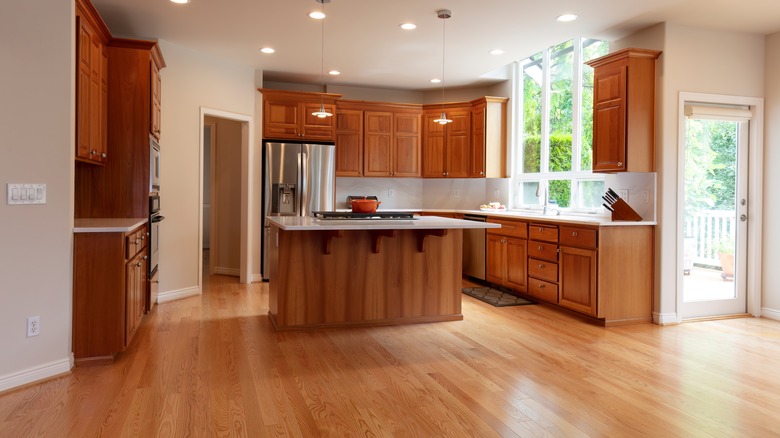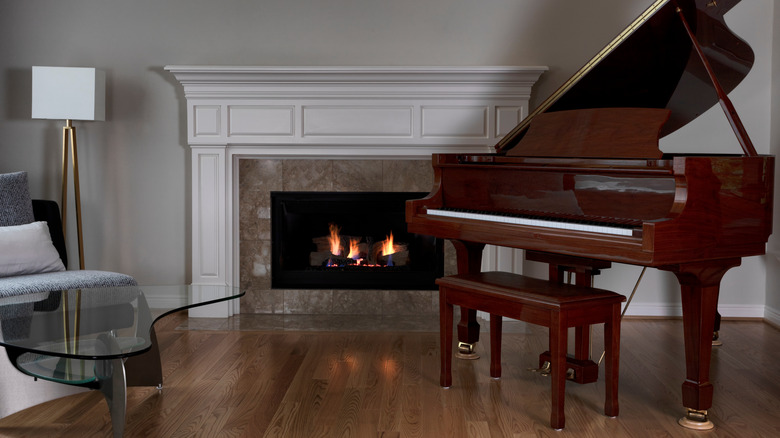Everything You Should Know About Red Oak Flooring Before Investing
Different types of flooring go in and out of fashion, but there are numerous reasons why hardwood is always a good choice. Any hardwood flooring can be attractive, durable, and bring a welcoming warmth to a room. Red oak has long been one of the more popular hardwood flooring options, but is it right for your home? Experts feel there are a number of flooring materials that aren't worth the money, but there are plenty of reasons why red oak hardwood floors could well be worth the investment for your home. Red oak floors in particular are eco-friendly, adaptable, and competitively priced, and if they're cared for properly, they could last a lifetime. Here's a deeper dive what you need to know before having them installed.
Firstly, for those who are in love with real wood floors but concerned about the environmental impact of their choices, red oak is way better than imported alternatives. Red oak is a North American native. It grows in natural forests across the eastern states, and while it's growing it provides valuable habitat for birds and wildlife. Ordering red oak wood with a Forest Stewardship Council (FSC) certification is an even better way to ensure sustainable production. Besides being great for the planet, red oak floors can also be a reliable choice inside your home.
Red oak floors are a versatile and durable investment
The red oak tree (Quercus rubra) gets its name from the color of its leaves in fall. The wood itself can vary from whitish through light brown with pink tones to reddish brown. It can also be stained, so red oak flooring can be matched to virtually any décor style. Red oak's ability to take stain easily can be a long-term advantage too. If you want to update the style in a particular room, there's no need to tear up the existing floor. You can just sand and restain it to change its color. The cost of hardwood flooring can fluctuate considerably, but the availability of red oak means prices are relatively stable, and it is among the more affordable options, especially compared to white oak. However, red oak flooring will need refinishing periodically. Experts recommend every 7 to 10 years, though it will depend on wear and tear.
Red oak is pretty durable, but heavy impacts could leave dents. With a Janka hardness rating of 1290, red oak is tougher than teak and walnut, although not up there with the hardest, which is hickory at 1820. Installing and caring for red oak floors requires some forethought. It has an open pore structure, so high humidity can cause it to warp. Because of this, red oak isn't recommended for damp environments like bathrooms and should never be cleaned with a steam mop (one of several ways you could damage your hardwood floors without noticing). Consistent exposure to direct sunlight can also cause problems, but this is true of any hardwood flooring.

